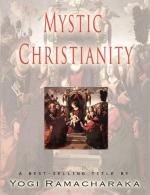In one of His journeys Jesus found Himself invited to the house of a leading citizen of the town in which He was preaching. This citizen was one of the class known as Pharisees, whose characteristics were an extreme devotion and adherence to forms and ceremonies and a bigoted insistence upon the observance of the letter of the law. The Pharisees were the ultra-orthodox center of an orthodox people. They were the straight-laced brethren who walked so erect that they leaned backward. They were the people who thanked God that they were not like unto other men. They were the “uncommonly good” members of church and society. The very name stands even unto this day as a synonym for “pious sham.”
Just why this Pharisee had invited the Master to dine with him is not easily understood. It is likely that it was a combination of curiosity and a desire to entrap his guest into statements and admissions that might be used against him. At any rate, the invitation was given and accepted.
The Master noted that certain little ceremonies usually extended by the Hebrews to a guest of equal standing were omitted by His host. His head was not anointed with the ceremonial oil, as was the custom in houses of this character when the guest was honored as an equal or desirable addition to the family gathering. Clearly He was regarded as a curiosity or “freak” rather than as a friend, and had been invited in such a spirit. But He said nothing, and passed over the slight. And the meal passed along smoothly up to a certain point.
The host and his guests were reclining easily, after the Oriental fashion, discussing various topics, when a woman pressed her way into the banquet hall. Her dress proclaimed her to be one of the women of easy virtue abounding in all Oriental towns. She was clad in showy apparel and her hair fell loosely over her shoulders after the custom of the women of her kind in that land. She fixed her eyes upon the Master and moved slowly toward him, much to the annoyance of the host, who feared a scene, for the Master would most likely administer a rebuke to the woman for presuming to intrude upon the presence of Him, a spiritual teacher.
But the woman still pressed forward toward Him, and at last, bending down low, her head touching His feet, she burst into tears. She had heard the Master preach some time before, and the seeds of His teaching had taken root and had now blossomed within her heart; and she had come to acknowledge her allegiance and to render an offering to Him whom she revered. The coming into His presence was her token of a spiritual regeneration and a desire to begin a new life. Her tears flowed over His feet, and she dried them off with her long hair. Then she kissed His feet, as a token of her allegiance and worship.
From her neck hung a chain holding a little box filled with precious perfumed oil, which she esteemed highly, as did all the people of her race. The oil was of the nature of attar of roses and was the essential oil extracted from fragrant blossoms. She broke the seal and poured the fragrant oil over the hands and feet of the Master, who rebuked her not, but who accepted the tribute even from such a source. The host began to indulge in thoughts not flattering to the intelligence of his guest, and a scarcely concealed sneer appeared on his lips.




